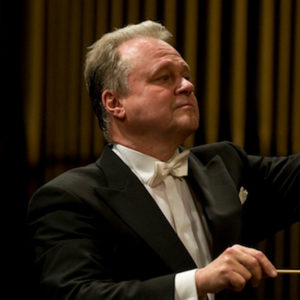
Share Album:
Schumann | Dvořák: Concerti For Cello & Orchestra
Carmine Miranda cello
Moravian Philharmonic Orchestra | Petr Vronský conductor
Composed almost 50 years apart, Dvořák’s Cello Concerto in B Minor (1895) and Schumann’s Cello Concerto (1850) are closely linked in the pantheon of Romantic concerto literature. Cellists of many generations have long looked at both of these pieces as essential components in their artistic development, and each has been recorded many times over by the titans of the instrument to showcase their technical mastery.
At age 26 international soloist Carmine Miranda bases his interpretations of these masterworks from several years of historic research and performance experience, which have led him to discover new secrets to be found in the scores of the Navona Records release SCHUMANN | DVOŘÁK: CONCERTI FOR CELLO & ORCHESTRA. Miranda, whose playing has been described as “remarkable” (Gramophone), “a fiery presence” (Limelight) and “spectacular” (Sonograma Magazine), seeks to balance concepts of classical traditions, multinational folklore, and technical prowess combined with a state-of-the-art high-definition audio engineering in order to create the most realistic sound and reliable version of these works.
Composed in a period of two weeks and lasting over a two year revision by the composer, Schumann’s Cello Concerto is considered to be one of his most enigmatic works due to its structure. Originally titled “Concertpiece,” it differs from other instances of its genre, with its fully connected structure from beginning to end and by including more fragmented passages.
Miranda’s take is decidedly diverse from other contemporary interpretations, and deliberately follows historical traditions in terms of tempi, dynamics, and phrasing. In the soloist’s reading, Schumann’s “variations on a theme” musical intentions are interpreted as a series of internal conflicts and conversations between the solo cello and the orchestra. In his recent article “Decoding the Schumann Cello Concerto” (The Musical Times Journal of Music), Miranda makes a compelling case that Schumann’s work is brimming with embedded codes and underlying meanings, which, when taken together, point to a very different vision than the norm.
Dvořák’s explosive concerto in many ways marks the coalescence and arrival of the cello concerto, which matured at the end of the nineteenth century, with other cello concertos coming from Camille Saint-Saens, Édouard Lalo, Edgar Elgar, and many others. Here too Miranda seeks to ramp up the emotionally-charged content, creating new and striking contrasts that have not been heard in any other recorded interpretations. Harmonies splash like dollops of brightly colored paint on a white canvas, and Miranda’s elegant playing transforms this already demanding concerto into a virtuosic piece of the highest order.
Listen
Artist Information

Carmine Miranda
Award winning cellist Carmine Miranda has established an international career and recognition as a soloist, chamber musician, educator, and is a best-selling recording artist. Praised by many publications such as Fanfare Magazine for “fast becoming known for his ability to combine virtuosity with intense, well-thought-out interpretations” and by The Strad Magazine for “showing himself to be in full command of both instrument and works,” Miranda’s performances and recordings have appeared in some of the finest concert halls, music festivals, radio and TV stations, as well as PBS affiliated stations all over the United States, Europe, Latin America, and Asia.

Moravian Philharmonic Orchestra
The Moravian Philharmonic Orchestra is one of the foremost and oldest symphony orchestras in the Czech Republic. It is based in the historical capital of Moravia, the city of Olomouc, and has been a leader of music activities in the region for the past 70 years. Its artistic development was directly influenced by distinguished figures from the Czech and international music scene.

Petr Vronský
After successes in several important international competitions for conductors — including the competition in Besancon France in 1971 and the Karajan Competition in Berlin in 1973 — his career began at the opera company in Pilsen. From 1974 to 1978, he was Chief of Opera of the State Theater in Usti nad Labem, Czech Republic. In 1978, he was appointed Chief Conductor of the Brno Philharmonic Orchestra, a position he held until 1991. Vronsky was later appointed Chief Conductor of the Janacek Philharmonic Orchestra Ostrava in 2002.
